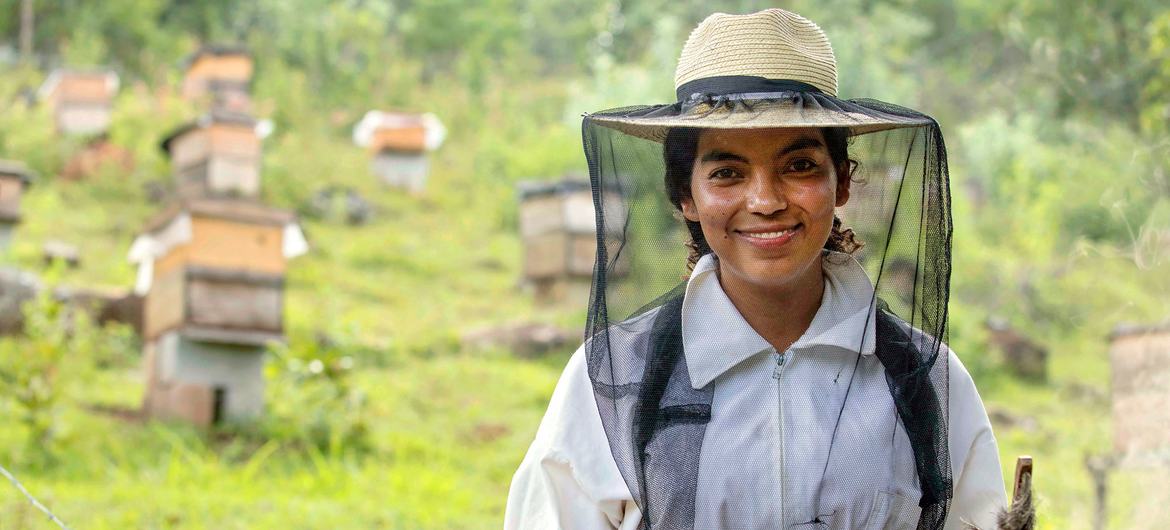Beekeepers around the world earn their livelihoods from the golden honey their bees produce, but they also play a critical role in pollinating 87 of 115 leading food crops worldwide
 KRC TIMES Education Desk
KRC TIMES Education Desk

- FAO (Food and Agriculture Organization of UN) plays a leading role in facilitating and coordinating the International Pollinators Initiative and is committed to promoting policies that support biological plant pest control and limit pesticide use through the Global Action on Pollination Services for Sustainable Agriculture, aiming to build greater habitat diversity in agricultural and urban environments.
- Three out of four crops across the globe producing fruits or seeds for human use as food depend, at least in part, on pollinators.
- Safeguarding bees safeguards biodiversity, as most pollinators are wild, including over 20 000 species of bees.
- Pollinator-dependent food products contribute to healthy diets and nutrition.
- Improving pollinator density and diversity boosts crop yields – pollinators affect 35 per cent of global agricultural land, supporting the production of 87 of the leading food crops worldwide.
- Nearly 75 per cent of the world’s crops producing fruits and seeds for human use depend, at least in part, on pollinators.
Way more than just honey
It’s not just the diversity of bees that’s amazing, so too are the huge range of services they provide.
Together with wild pollinators, bees play a major role in maintaining biodiversity and ensuring the survival and reproduction of many plants. They also ensure forest regeneration, increase sustainability and adaptation to climate change and improve the quantity and quality of agricultural production systems.
We have so much to thank bees for
Bees provide us with a huge range of products, whether via pollination services or directly from the hive.
Beekeeping is a worldwide activity and hundreds of thousands of small-scale beekeepers depend on bees for their livelihoods. It also represents a viable means to improve the resilience and livelihoods of rural and indigenous communities.
Because beekeeping can be done with locally available material and limited resources, it offers decent working opportunities and income generation to people in extreme poverty, women, young people and even persons with disabilities.
While the diversity of bees is amazing, so is the variety of systems and innovations developed to keep them, including beehives ranging from various local-style to complex contemporary hives.
But challenges are looming
Unfortunately, both bee diversity and bee populations are under pressure on multiple fronts.
Unsustainable agricultural intensification, pesticides, pests and pathogens have a negative impact on bee populations. So too does the displacement of locally adapted bees by exotic bees, habitat destruction, and climate change.
A decline in bees could have disastrous effects for the future of food. Nutritious crops like fruits, nuts, and many vegetable crops will be increasingly substituted by staple crops like rice, corn, and potatoes, resulting in an imbalanced diet.


